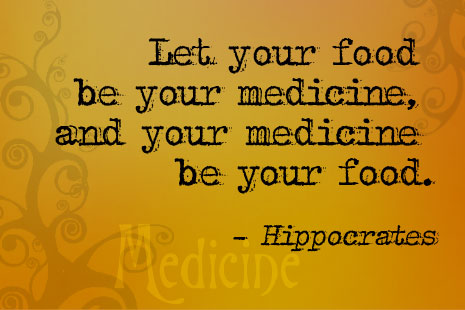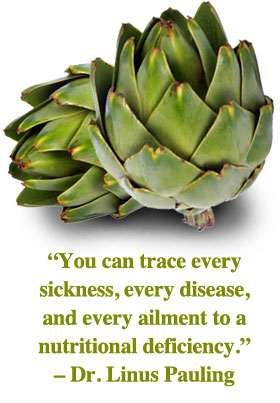Is Dysbiosis Robbing Your Health? Part 1: Fermentation
by Juanita Watson, all rights reserved.
Intestinal “dysbiosis” (means “not living together in harmony”) is a very common condition that is egregiously undiagnosed in today’s population. Without a proper understanding of what dysbiosis actually is, and the contributing factors that lead to the condition, most people and health care practitioners actually end up managing the symptoms of dysbiosis, and never actually treat the root cause. Dysbiosis left untreated will become a chronic condition. Consequently, it will weaken the entire body setting it up for a cascade of health problems, and ultimately degenerative illness and disease. Recent research is now listing dysbiosis as the cause of arthritis, diarrhea, autoimmune illness, B12 deficiency, chronic fatigue syndrome, cystic acne, the early stages of colon and breast cancer, eczema, food allergy and food sensitivity, inflammatory bowel disease, irritable bowel syndrome, psoriasis, and steatorrhea.
What is dysbiosis? At any given time, we have over 400 species of “friendly” bacteria in our digestive tract. The number of bacteria in our intestines is actually more than the amount of cells in our entire body. These bacteria are critical to our survival as they are key to proper immune function, assist in nutrient assimilation, control acid levels in the intestines, reduce cholesterol, and are an important defense against other foreign invaders (bacteria, viruses, yeasts, and parasites). When the level of “unfriendly” bacteria rise higher than the “friendly” bacteria can handle, we have the condition known as dysbiosis. There are four common patterns of dysbiosis; fermentation, putrefaction, deficiency, and sensitization.
For the purpose of this post, let us explore the condition of fermentation dysbiosis. This pattern is characterized by bloating (especially after eating), excess gas, fatigue, indigestion, constipation and diarrhea. These symptoms are directly linked to improper digestion of carbohydrates and sugars, as well as beer, wine, grains and fiber. When these foods are eaten, the unhealthy microorganisms in the intestinal tract, predominantly candida yeast, go into overdrive feeding off the carbohydrates. The metabolic byproduct of the unhealthy microbes is gas and very poisonous toxins. This gas can be very painful, and the boating severe, and the toxins lead to irritation and damage to the brush border (villi and microvilli) of the intestinal lining. This damage causes increased intestinal permeability in which large molecules, including the toxic microbes and their waste products actually leak into the bloodstream causing damage to cells throughout the body. This irritation and toxic leakage creates a state of inflammation in the intestinal tract as well as throughout the body. With an immune system that is now on high alert, the body becomes highly sensitive to all foreign invaders. Left unchecked this inflammatory state becomes chronic, and as health deteriorates, many reach for anti-inflammatory drugs which actually further exacerbate the problem, as they are food for the candida.
It is important to also note that an overgrowth of candida, known as candidiasis, is also very misunderstood and under diagnosed by medical health practitioners. Candida, a yeast, naturally occurs in the digestive tract, but when it begins to overtake the friendly bacterial environment of the intestines, it can actually turn into a fungus, and embed itself into the deep layers of the intestinal lining. It this form, it is very virulent, and reversing this advanced condition can take a long term commitment to a very restricted diet, nutritional supplementation, exercise routine, stress prevention techniques and a strict reevaluation of other lifestyle factors. It is better to address this issue in its beginning stages before it reaches the “health crisis” state.
There is much debate about this issue of intestinal permeability, also known as “leaky gut,” and its connection to food intolerance and food sensitivities. If you are having an increased sensitivity to certain foods in your diet, it would be wise to consider that some type of intestinal dysbiosis and its cascade of events may be the cause. Another considerable downside of damage to the intestinal lining is that nutrient absorption is significantly impaired, leading to deficiency. In most cases, people with fermentation dysbiosis have very low energy levels, and a myriad of symptoms associated with a lack of proper nutritional intake.
There are many contributing factors that lead to fermentation dysbiosis.. One of the most common factors is a poor diet that is high in refined foods, fat, sugar, and flour products, and low in fiber, nutrients and enzymes. Alcohol, especially beer and wine significantly influence a state of dysbiosis, and medications are a major culprit. Antibiotics are not discriminating, and kill all bacteria in the gut, including the friendly variety. This creates a prime environment for opportunistic microbes to take over. Painkillers (steroidal and non-steroidal) and oral contraceptives actually act as food for unhealthy bacteria and candida. Stress, especially when chronic, strongly influences digestive health. High stress levels not only weaken the immune system and thus the body’s natural defenses, but typically one reaches for unhealthy food choices that supply quick energy (sugar), or comfort (alcohol, breads, baked goods, pasta, ice cream, processed foods) during these times. As mentioned, these foods are all significant contributors to fermentation dysbiosis. Another factor contributing to dysbiosis is environmental toxins. Found in processed foods, non-organic fruits and vegetables, the water we drink, and the air we breathe, these chemicals build up in our body over time significantly impairing health and immune function.
Fortunately the condition of fermentation dysbiosis is treatable. Avoiding high carbohydrate foods, refined foods, and sugar is critical to reversing this type of dysbiosis. A healthy diet consisting of whole foods (high in fiber), vegetables, grains such as brown rice and quinoa, low sugar fruits such as berries, adequate protein, and fermented foods will significantly reverse this situation. Also, a rigorous supplement protocol is necessary. Low levels of hydrochloric acid in the stomach usually is a contributing factor, so HCl capsules with each meal is critical. Anti-microbials such as Goldenseal tincture/capsules, Oil of Oregano (ADP, Biotics Research), Caprylic Acid, and Grapefruit Seed Extract will attack the foreign invaders. The addition of probiotics and prebiotics are also very important to healing. Probiotics add the lacking friendly bacteria back into the intestines and the prebiotics feed the healthy probiotics. As a colon hydrotherapist, I have to always recommend a series of colonics to go along with a healing program for fermentation dysbiosis. Colon irrigation will help to clear out the myriad poisonous toxins generated by the unfriendly bacteria, lighten the load on the liver, and keep the bowels moving which is critical to healing dysbiosis.





